|
BY DENGFENG HUANG Travel makes you richer --- it lets you experience new landscapes, languages and ways of thinking. This philosophy sits well with OHBM. Our organisation promotes travel and discussion amongst brain mappers from different corners of the globe and different sections of society. As part of this cultural engagement, we currently have 5 chapters, representing brain mappers in the Alpine region, Turkey, China, Korea and Latin America. These Chapters allow researchers from clear geographical areas to pool their knowledge and resources, and speak with a unified voice both within OHBM and to stakeholders in science more generally. An excellent example of the knowledge that can be gained - not just within these groups but by outside observers - can be seen from the first meeting of Chinese Young Scholars. This inaugural event was co-organised by Chao-Gan Yan, and originally covered by Dengfeng Huang in Mandarin on WeChat. Here we present an English translation, revealing to those less adept at reading hànzì just how the event went, and offering useful career advice for early career researchers around the world. The first Annual Event of Chinese Young Scholars was successfully held on June 27, 2017 during the OHBM Annual Meeting in Vancouver, Canada. Recent years have witnessed a rapid development of brain research, ranging from molecular mechanisms to neuroimaging and computational modeling. This surge of brain science research has brought together scientists from a variety of backgrounds, such as neuroscience, psychology, physics, statistics, and engineering. Interdisciplinary communication and collaboration have hence become increasingly important. In addition, it has become increasingly clear that young scientists often experience confusion and bottlenecks in their careers. With these thoughts in mind, we hoped to provide a platform where: 1) Chinese researchers can communicate, discuss, and collaborate on cutting-edge neuroscience topics and methods, and 2) young scholars can seek advice from senior researchers on the route to a successful scientific career. The 2017 Annual Event of Chinese Young Scholars for Human Brain Mapping received support from the OHBM China Chapter and the OHBM Communications Committee. After the event was announced in May, it attracted enthusiastic responses worldwide. We received registrations from over 130 Chinese researchers based in over 10 countries and regions, including Mainland China, Hong Kong, Taiwan, the United States, Germany, Canada, Australia, the United Kingdom, South Korea, Singapore, and Switzerland. Our attendants ranged from graduate students, junior researchers, senior researchers, professors, to colleagues from industry. The event commenced with the host, Yuhua Guo, introducing the organizing committee: Chaogan Yan, Yuan Zhou, Yina Ma, Dengfeng Huang, Yuhua Guo, Bin Lu, Shengchuang Feng, Chunliang Feng, Yinshan Wang and Qing Wang. The formal schedule started with two keynote speakers sharing insights into developing research methods and choosing research questions. The first speaker was Professor Yihong Yang, Chief of Section of Magnetic Resonance Imaging and Spectroscopy and Senior Investigator from the National Institute of Drug Abuse, USA. Through sharing his latest research, the Role of Functional Magnetic Images in the Study of Psychiatric Disorders, Professor Yang inspired young scholars to tackle scientific questions with rigorous thinking, careful experimenting, and dedication to seeing things through. The second speaker was Professor Tianzi Jiang, director of the Brainnetome Center at the Chinese Academy of Sciences. Professor Jiang shared his contribution on the brainnetome atlas, an in vivo map with fine-grained functional brain subregions and detailed anatomical and functional connection patterns for each area, and the application of this brainnetome atlas to neuroscience research. Professor Jiang emphasized the importance of choosing a meaningful research direction and being persistent in pursuing it. Professor Yihong Yang provided advice on how to be a successful research student, based on his experience back in the 80s. First, he suggested that you should always try to turn adversity to your favor, whether the adversity is from interpersonal relations, developing theories, or interpreting results. Professor Yang advised that if you ever get stuck, it helps to divert some attention to other useful tasks, such as learning new knowledge or skills. This could not only help reduce anxiety, but also build some sense of achievement. Second, when comparing Chinese students with western students, Professor Yang pointed out that although Chinese students are generally diligent, they sometimes lack creativity and independence. He encouraged young scholars to cultivate their own ideas in addition to working hard, to better prepare them for becoming an independent researcher. Professor Tianzi Jiang shared insights on identifying research interests. In his career, Professor Jiang switched research interests multiple times and sought opportunities both in China and abroad. He advised that people could only find their passion once they understood themselves. Importantly, when searching for the ideal research topic, one should not only focus on the data at hand, but also envision important research trends in the long run based on existing knowledge. It would be best if one can predict research directions in the next decades and work towards those directions. Professor Jing Sui shared her experience of switching from engineering to neuroimaging, emphasizing the importance of self-motivation. She stressed that young scientists should be more motivated and proactive in their projects, and not just be satisfied with what their supervisors instructed them to do. She echoed Professor Yang’s advice that becoming an independent thinker is a crucial first step to a successful career in science. Professor Yina Ma added that young scholars should "fully estimate and prepare for the difficulties you may encounter in an academic career ... when you see researchers being successful, it must be that they have already overcome countless frustrations and difficulties. If you are still willing to carry on with research after considering all the possible pitfalls (such as having your manuscript rejected, or having to change your research topic), then a scientific career may be truly for you!” Towards the end of the session, Professor Chun-Yi Lo reminded early career scientists to cherish the time they have now. “It’s your best time to fully concentrate on a particular question, while having the chance to embrace and prepare for all sorts of possibilities in the future. Do value it and make the most out of it!" After the meeting, we enjoyed a group dinner and live music at Malone's Social Lounge and Tap House. Young and senior scientists mingled in a more relaxed atmosphere, discussing science and research. We were pleased to receive lots of positive feedback from the attendants. One remarked that “[The event] is simply beyond my expectations! It is really amazing to discuss frontier neuroscience research topics with senior investigators, to get advice for career development, and to know other people’s research interests and form collaborations." The success of the first Annual Event of Chinese Young Scholars for Human Brain Mapping was highlighted at the closing ceremony of OHBM 2017. We sincerely look forward to meeting everyone again next year in Seoul, South Korea!
0 Comments
Your comment will be posted after it is approved.
Leave a Reply. |
BLOG HOME
Archives
January 2024
|
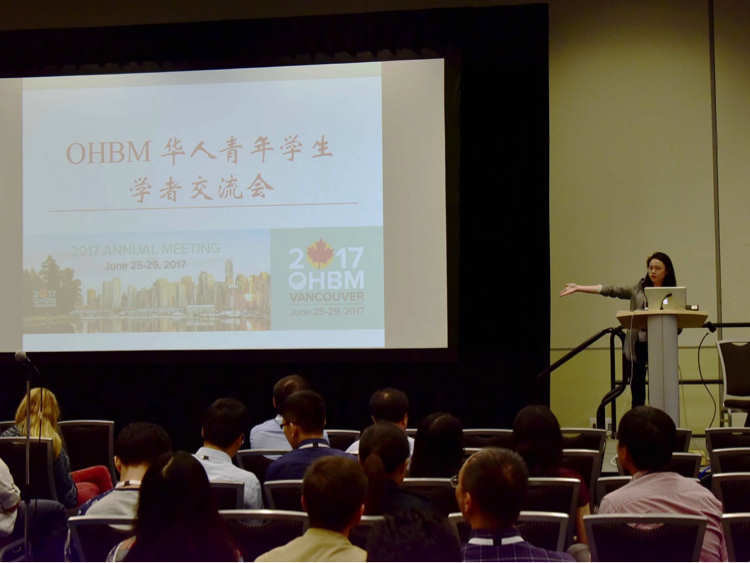
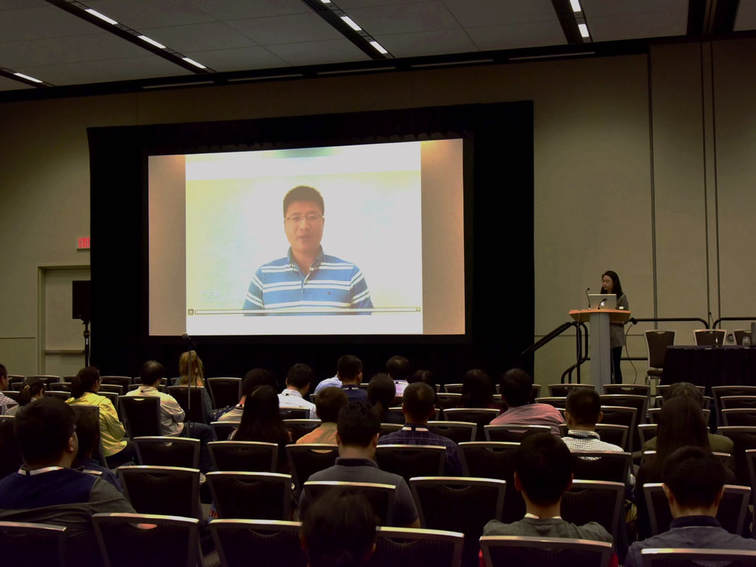
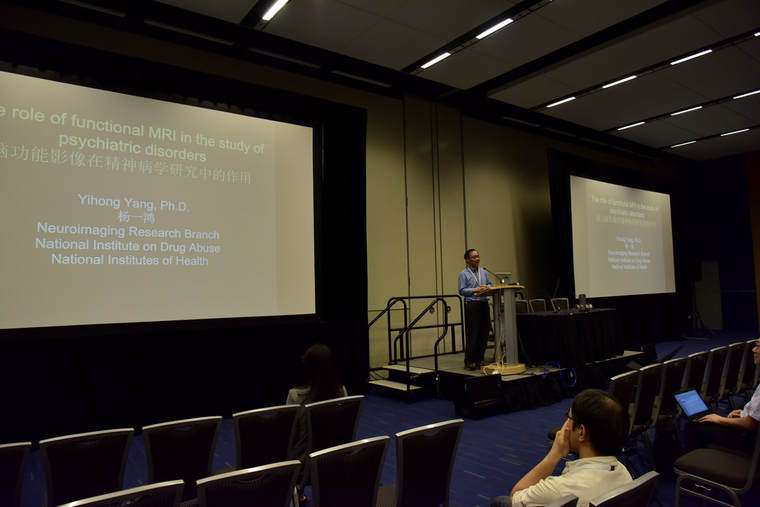
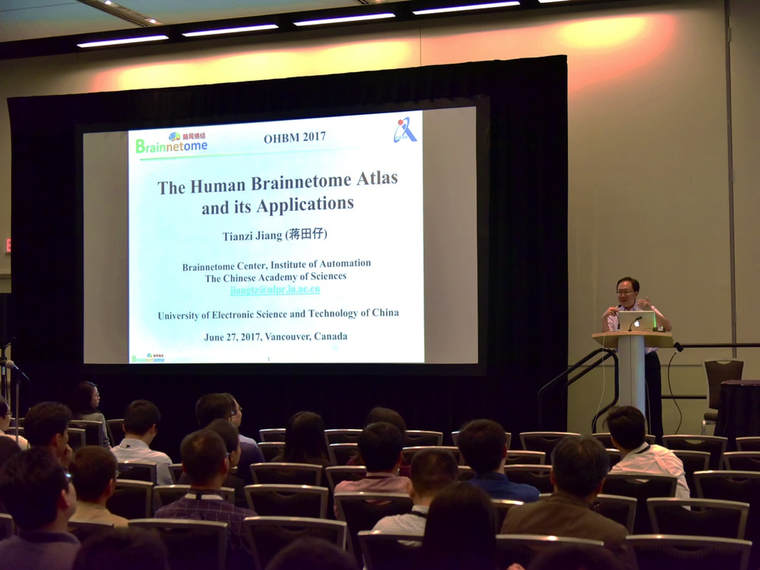
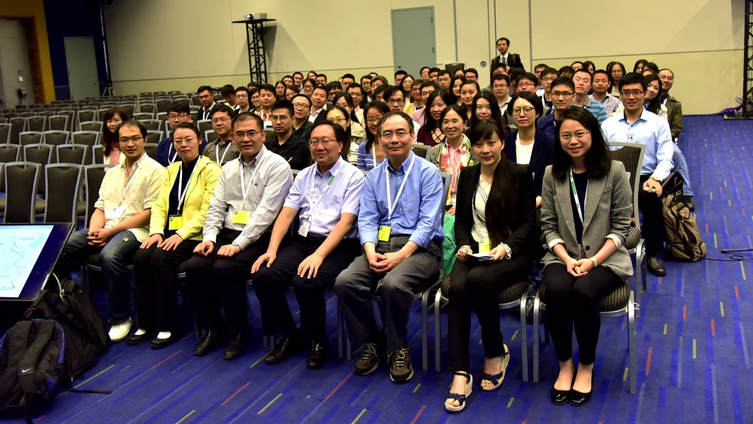
 RSS Feed
RSS Feed